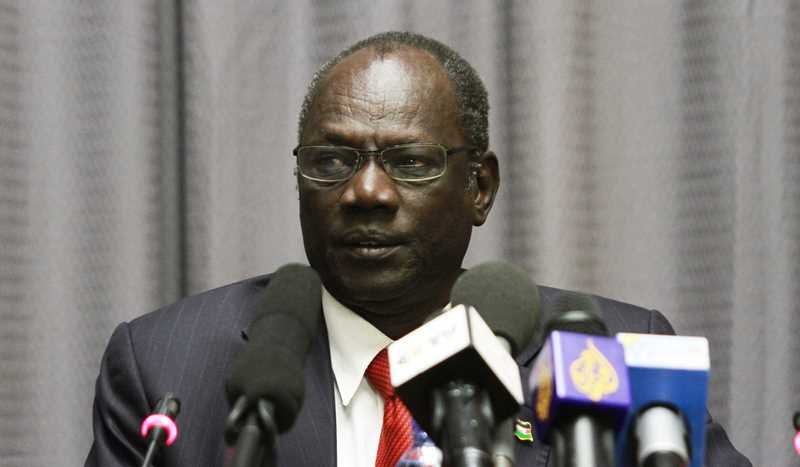The existing arms embargo imposed by the UN Security Council (UNSC) in 2018 is delaying the graduation of the necessary unified forces, South Sudan has said.
Michael Makuei Lueth, Minister of Information and Broadcasting, disclosed that the government is unable to arm soldiers from especially the opposition due to the arms embargo that bars them from procuring weapons overseas.
“We are unable to move forward, most of the opposition forces came to the training centers without firearms, and we cannot graduate them due to the arms embargo,” Makuei told Xinhua in Juba on Tuesday.
The UNSC Resolution 2428 adopted in 2018, includes travel bans and asset freezes against designated individuals and entities in the youngest nation.
The arms embargo was in May, extended by UNSC until May 2021.
President Salva Kiir and various opposition parties in February formed the transitional unity government after signing the 2018 revitalised peace deal in Ethiopia, but they are yet to complete training and unification of their forces estimated around 83,000 personnel.
In addition, the parties have not yet established a transitional parliament to debate and pass the amended constitution to replace the current 2011 transitional constitution.
Makuei revealed that a sizable number of soldiers have already completed training but cannot pass-out due to shortage of weapons.
He urged the UNSC to lift the arms embargo to enable them move forward with unification of the forces which include soldiers, police, prisons and wildlife.
“We are requesting the UN to lift the arms embargo. How does the UNSC expect us to graduate these forces without lifting the arms embargo,” said Makuei.
Meanwhile, the main opposition group Sudan People’s Liberation Movement/Army-in Opposition (SPLM/A-IO) led by First Vice President Riek Machar recently agreed to submit its list of officials to be part of the states and county governments.
The SPLM-IO delayed appointing its officials in the states due to a long-standing disagreement with the government over the appointment of its nominee Johnson Olony as governor of the oil-rich northern Upper Nile state.
In 2015, Olony who was en route to fight rebels in Malakal defected from the South Sudan Army (SSPDF) with heavy weaponry joining the SPLA-IO under Machar, thus angering President Kiir.
South Sudan descended into conflict in December 2013, after a disagreement between President Salva Kiir and his deputy Riek Machar caused a split in the army leading to fighting between soldiers loyal to their respective leader.

